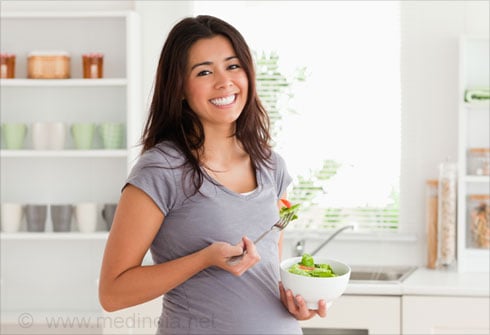Top 15 Foods to Avoid When Pregnant

People say, “You are what you eat,” and this is especially true when you are pregnant. You might be wondering, “What foods should I avoid while I’m pregnant to ensure the safety of my baby?” or “Are there any foods to avoid during the first trimester of pregnancy?” It can be difficult to choose foods during pregnancy because there are so many “dos and don’ts” out there. However, knowing which foods to avoid while pregnant is essential to both your own health and the health of your unborn child. Although pregnancy is a beautiful, life-altering experience that brings joy and hope, it is important to be careful about what you eat and drink during this time. There are many ways that certain foods can be harmful, including the spread of infections and the presence of harmful chemicals that can affect a baby’s growth. Whether you are in your first trimester or about to give birth, knowing which foods to avoid while pregnant will give you peace of mind. The top 15 foods to avoid while pregnant are listed here, along with suggestions for healthy alternatives.
Why is it Important to Know the Foods to Avoid When Pregnant?
Your diet must change during pregnancy to ensure that you and your baby receive the best nutrition while minimizing risks. Some foods may contain hazardous germs, parasites, or excessive amounts of toxins, all of which can have an influence on your baby’s health. This is why doctors emphasise a specific list of foods to avoid when pregnant.
Early pregnancy, particularly in the first trimester, is important for your baby’s organ development. During this time, avoiding risky foods is especially important because toxins can cause miscarriage or abnormalities in the fetus.
Understanding Foods to Avoid When Pregnant First Trimester
The first trimester not only marks the development of the baby’s major organs, but it is also frequently associated with sickness and dietary restrictions. Pregnant women should be especially cautious during this period. “What foods to avoid eating when pregnant in the first trimester?” is a common question among women.
Here are the major categories you should be aware of:
- Raw or undercooked seafood and meats
- Unpasteurized dairy products
- mercury-rich fish in particular caffeine in high doses Snacks made with sugar and processed junk food During your first trimester, avoiding these will lay the groundwork for a healthy pregnancy.
Top 15 Foods to Avoid When Pregnant
1. Raw or Undercooked Seafood
The bacteria and parasites Listeria and Toxoplasma, which can cause infections that are harmful to your baby, can be found in raw seafood like oysters and sushi. These infections could lead to miscarriage or preterm birth.
Veg alternative: Instead of raw fish sushi, try avocado sushi rolls or cooked vegetable tempura rolls for a delicious, safe option.
2. High-Mercury Fish
Certain fish like shark, swordfish, king mackerel, and tilefish have high mercury levels. Mercury is toxic to the developing nervous system of the fetus and can cause developmental delays.
Veg alternative: Include algae-based supplements or seaweed snacks, which are mercury-free and provide beneficial nutrients like iodine.
3. Unpasteurized Dairy Products
Soft cheeses like Brie, Camembert, feta, and blue cheese frequently come from milk that has not been pasteurized. These cheeses may contain Listeria bacteria, which can be harmful to a pregnant woman. Alternative for vegetables: If you want to increase your calcium intake without taking any risks, choose yogurt made from pasteurized milk, paneer, or cottage cheese.
4. Eggs that are uncooked or raw
Salmonella bacteria can be carried by raw eggs in homemade mayonnaise, hollandaise sauce, and certain desserts, posing a threat of severe food poisoning. Alternative for vegetarians: Use pasteurized egg products as substitutes or follow recipes that thoroughly cook eggs, such as boiled or scrambled eggs.
5. Deli Meats and Hot Dogs
Processed meats can be contaminated with Listeria. Always heat them until steaming hot before eating if you want these. Veg alternative: Try grilled or roasted vegetables wrapped in whole-grain bread or plant-based deli slices available in many markets.
6. Too Much Caffeine
While small amounts of caffeine are considered safe, excessive intake can increase miscarriage risk and low birth weight.
Veg alternative: Herbal teas like ginger or peppermint (consult your doctor) or warm milk with turmeric are soothing caffeine-free choices.
7. Alcohol
No amount of alcohol is safe during pregnancy. It can cause fetal alcohol spectrum disorders affecting growth and brain development.
8. Raw Sprouts
Raw sprouts (alfalfa, mung bean) are prone to bacterial contamination and should be avoided unless cooked thoroughly.
Veg alternative: Cooked legumes or roasted chickpeas can provide a similar crunch and protein.
9. Fruits and Vegetables Left
Unwashed Produce that has been contaminated may contain harmful parasites like Toxoplasma gondii. Always wash fruits and veggies thoroughly before eating.
10. Certain Herbal Teas and Supplements
Supplements and herbal teas may cause contractions or interact with medications. Always get advice from your doctor.
11. Junk Food and Sugary Snacks
Excess sugar and processed foods can lead to excessive weight gain, gestational diabetes, and nutritional deficiencies.
Veg alternative: Fresh fruits, nuts, and seeds are natural, nutrient-dense snacks that satisfy sweet cravings healthily.
12. Products from the Liver
Liver contains a lot of vitamin A, which can be harmful to a growing baby.
13. Artificial Sweeteners
Some artificial sweeteners may not be safe in pregnancy, so check labels and limit intake.
14. Canned Foods High in Sodium
Too much salt can increase blood pressure and risk of complications. Opt for fresh or frozen foods.
15. Certain Seafood with Parasites
Avoid raw shellfish and some freshwater fish that may carry parasites unless fully cooked.


